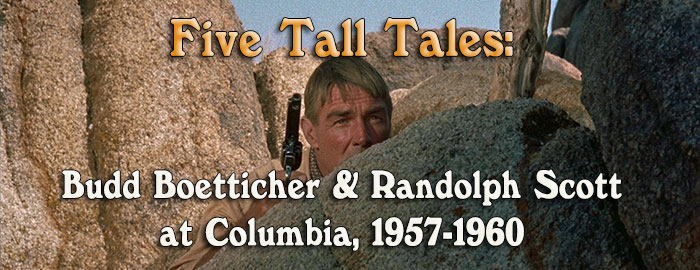
THE TALL T
Color, 1957,
77 mins. 38 secs.
Directed by Budd Boetticher
Starring
Randolph Scott, Richard Boone, Maureen O'Sullivan, Arthur Hunnicutt, Skip Homeier, Henry Silva, John Hubbard
Indicator (Blu-ray) (UK R0 HD), Sony (DVD) (US R1 NTSC) / WS (1.85:1) (16:9)
DECISION AT SUNDOWN
Color, 1957, 77 mins. 13 secs
Directed by Budd Boetticher
Starring Randolph Scott, John Carroll, Karen Steele, Valerie French, Noah Beery Jr.
Indicator (Blu-ray) (UK R0 HD), Sony (DVD) (US R1 NTSC) / WS (1.85:1) (16:9)
BUCHANAN RIDES ALONE
Color, 1958, 79 mins. 34 secs.
Directed by Budd Boetticher
Starring
Randolph Scott, Craig Stevens, Barry Kelley, Tol Avery, Peter Whitney, L.Q. Jones
Indicator (Blu-ray) (UK R0 HD), Sony (DVD) (US R1 NTSC) / WS (1.85:1) (16:9)
RIDE LONESOME
Color, 1959, 72 mins. 39 secs.
Directed by Budd Boetticher
Starring Randolph Scott, Karen Steele, Pernell Roberts, James Best, Lee Van Cleef, James Coburn
Indicator (Blu-ray) (UK R0 HD), Sony (DVD) (US R1 NTSC) / WS (2.35:1) (16:9)
COMANCHE STATION
Color, 1960, 73 mins. 11 secs.
Directed by Budd Boetticher
Starring Randolph Scott, Nancy Gates, Claude Akins, Skip Homeier, Richard Rust
Indicator (Blu-ray) (UK R0 HD), Explosive Media (Blu-ray & DVD) (Germany R0 HD/PAL), Sony (DVD) (US R1 NTSC) / WS (2.35:1) (16:9)
A cult director whose status seems to keep rising with each decade, Budd Boetticher is one of the fascinating directors of Hollywood's golden age who, like Joseph H. Lewis, Douglas Sirk, Anthony Mann, and William Castle, found ways of taking genre programmer assignments and turning them into miniature classics time and time again. In this case miniature doesn't refer to the quality of the films themselves but rather their running times, with his highly enjoyable westerns that made his name in the late '50s all running under 80 minutes. Tight, dynamic, and never less than engaging, they're all exactly the kind of films that movie fans love recommending whenever they can.
Though he got his start at Columbia Pictures, Boetticher didn't work for them exclusively and directed some great westerns for Warner Bros. and Universal, too. However, much of his reputation rests on the five films he made with Randolph Scott at Columbia from 1957 to 1960 (now usually referred to as the Ranown cycle along with two non-Columbia films, Seven Men from Now and Westbound), which became a revival house event in the mid-'00s when new prints started circulating in major cities. The titles were first gathered on DVD by Sony in 2008's The Films of Budd Boetticher set (with a budget 2015 DVD set from Mill Creek tacking on the good, non-Boetticher A Lawless Street as well) and then given a welcome, inevitable upgrade to Blu-ray in the U.K. from Indicator that's as fine a tribute to one filmmaker as you're likely to see on home video. The Indicator release also rightfully restores Scott's name to prominence on the cover equivalent to Boetticher's, something that the prior Sony set didn't do for some baffling reason.
First up here is 1957's The Tall T, which also makes for a fine, rousing introduction to the Boetticher-Scott partnership with the venerable western star cast here as Pat Brennan, whose trip out of town takes an unfortunate turn when he loses his horse in a wager. During the walk back he crosses paths with newlyweds Willard (Hubbard) and Doretta (O'Sullivan), whose stagecoach is targeted by three outlaws: volatile leader Frank Usher (Boone), Chink (Silva!), and Billy Jack (B-movie mascot Homeier). The cowardly Willard suggests the outlaws might be best off holding Doretta for ransom, which sets off a deadly chain of events as well as a strange admiration that forms between Brennan and Frank. Adapted by Burt Kennedy from an early Elmore Leonard short story called "The Captives," it's an ambiguous and fascinating film that rewards repeated viewings and sets the stage for what is to come.
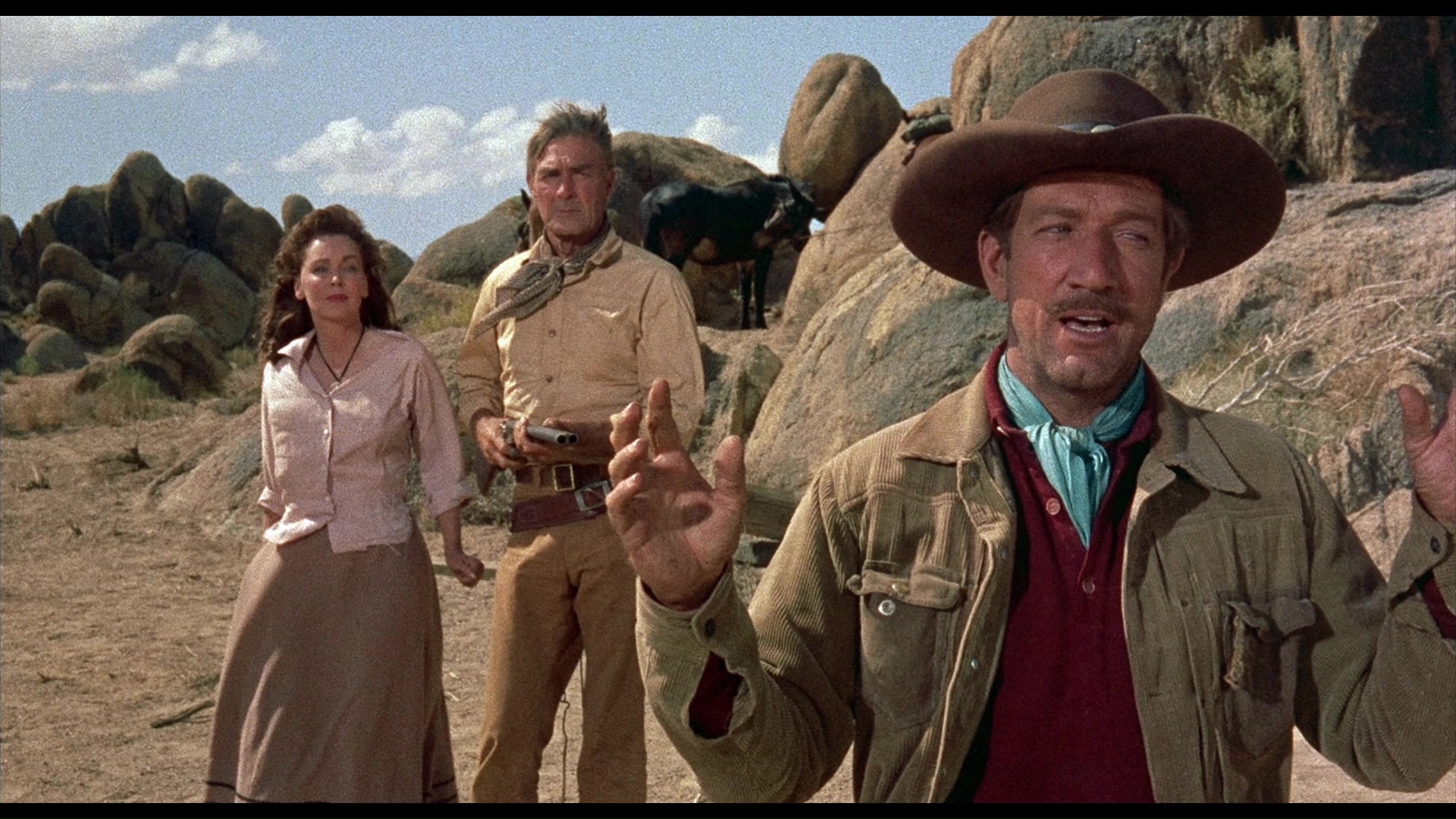
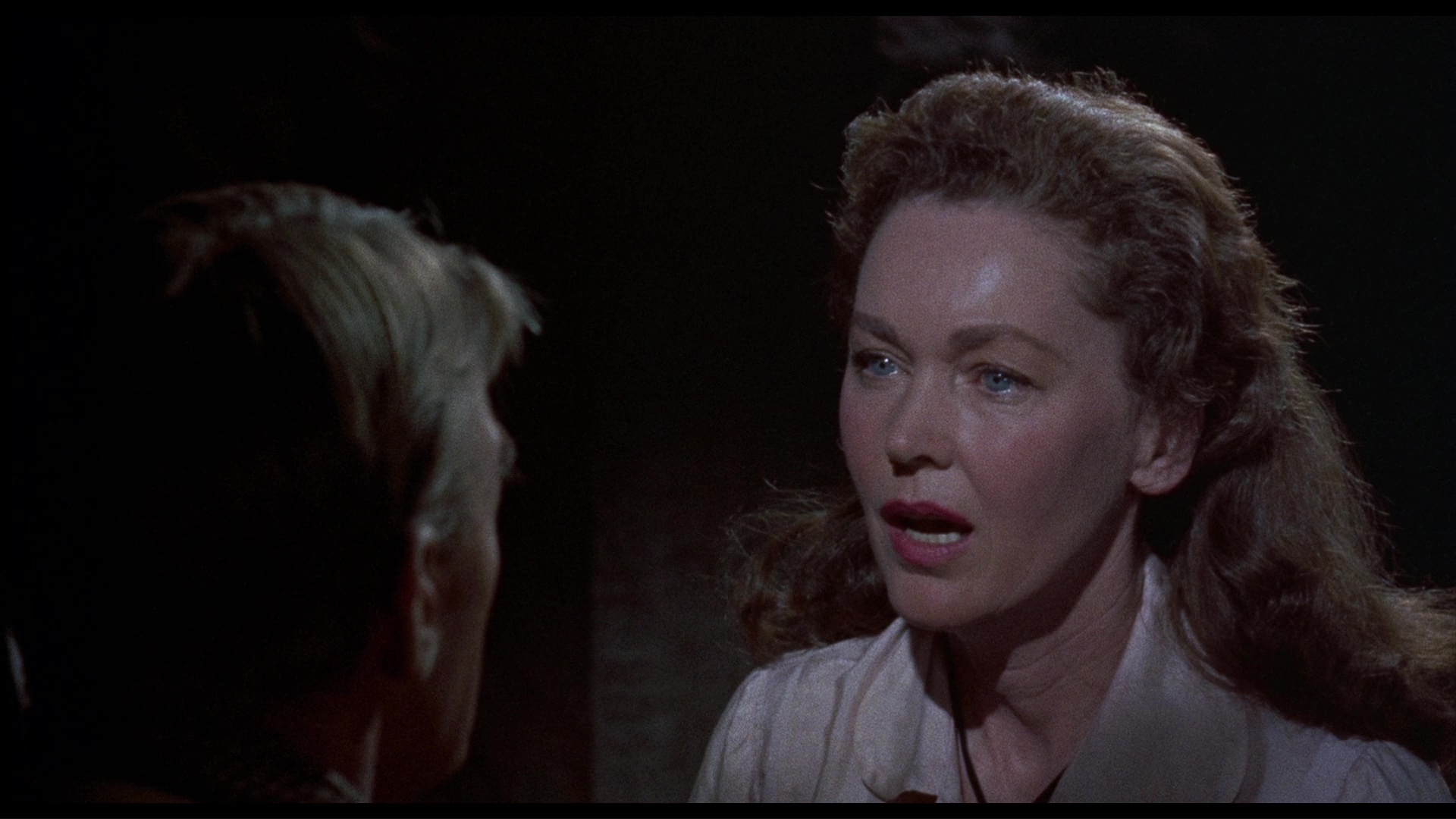
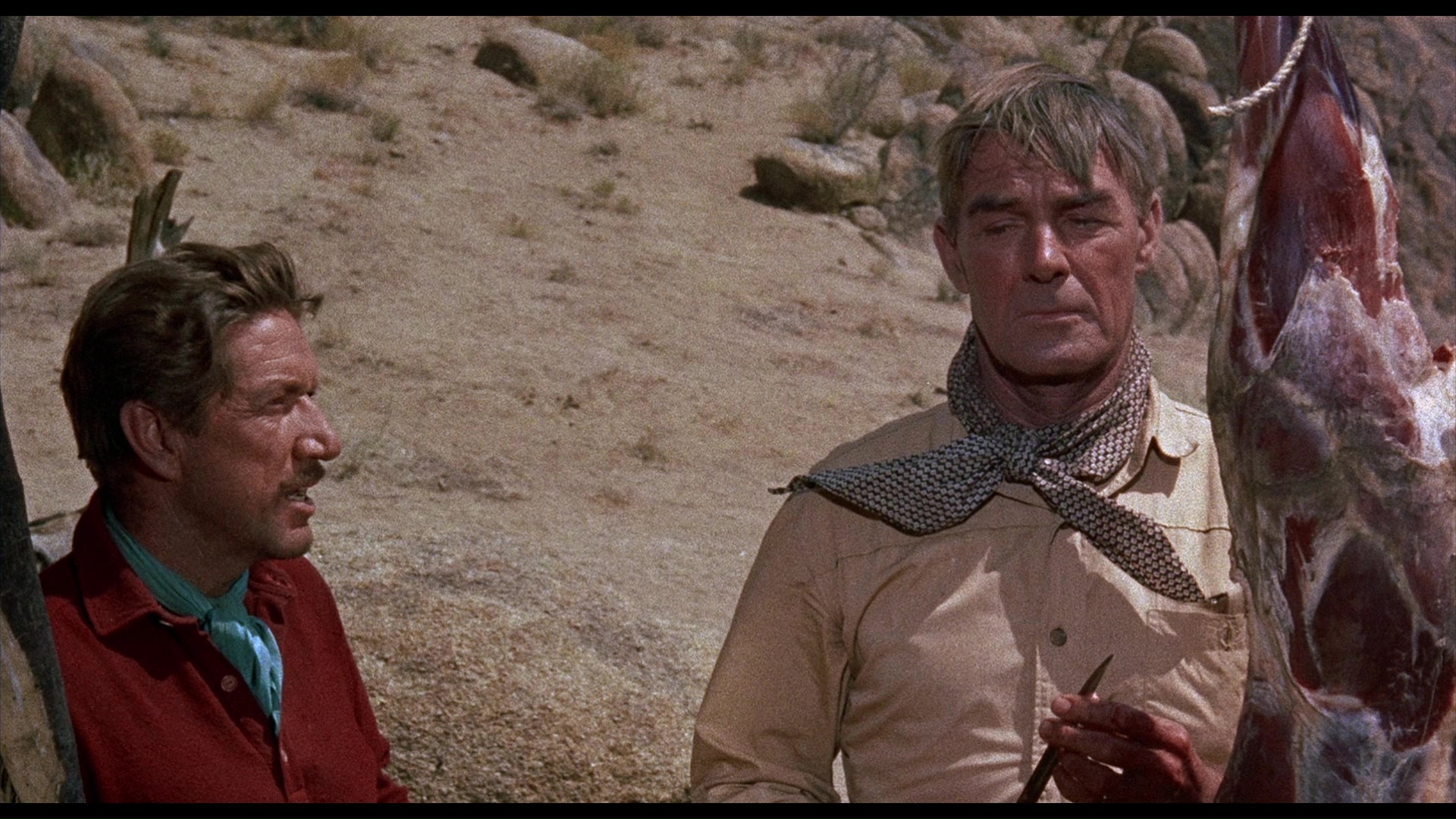
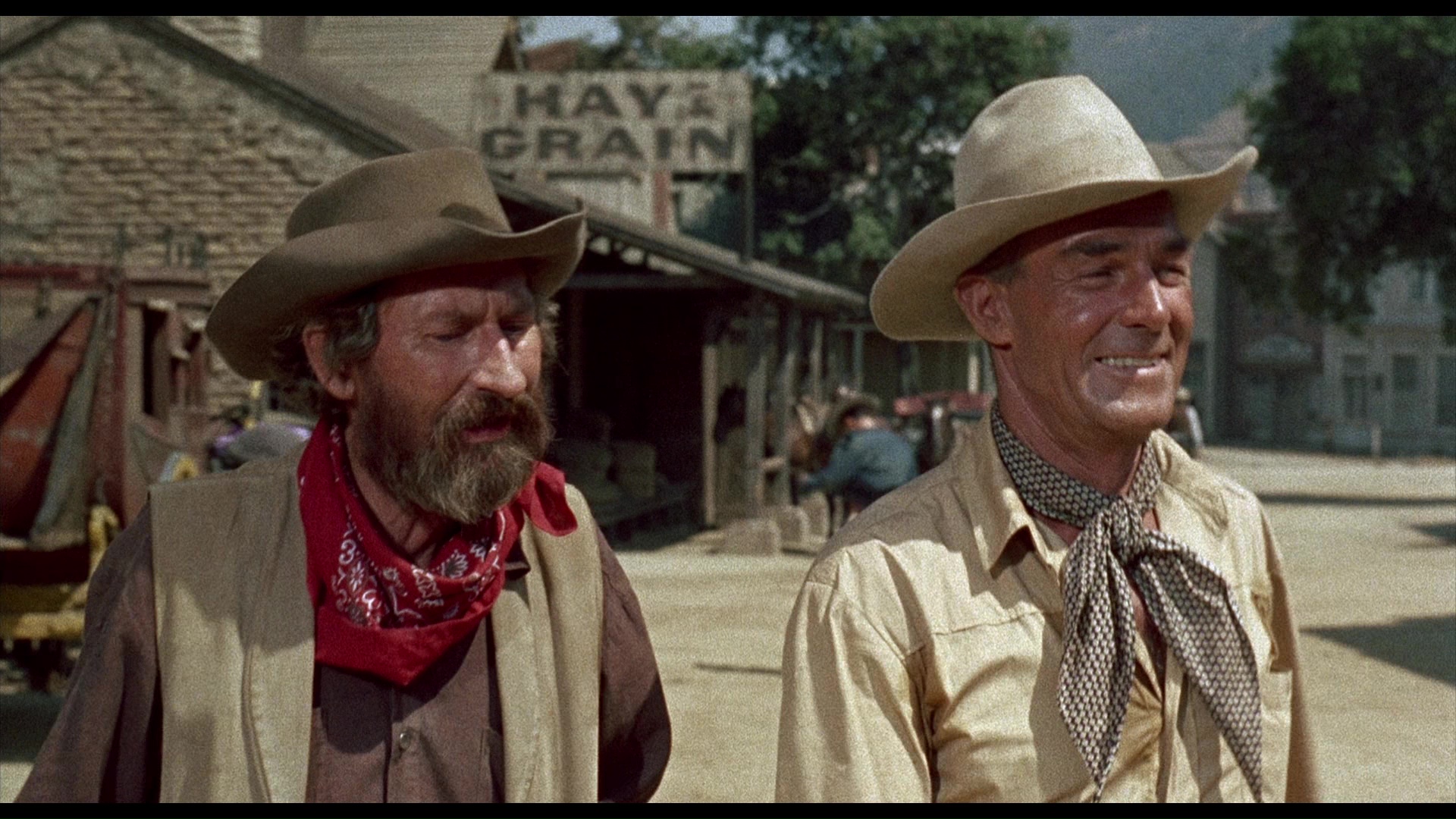
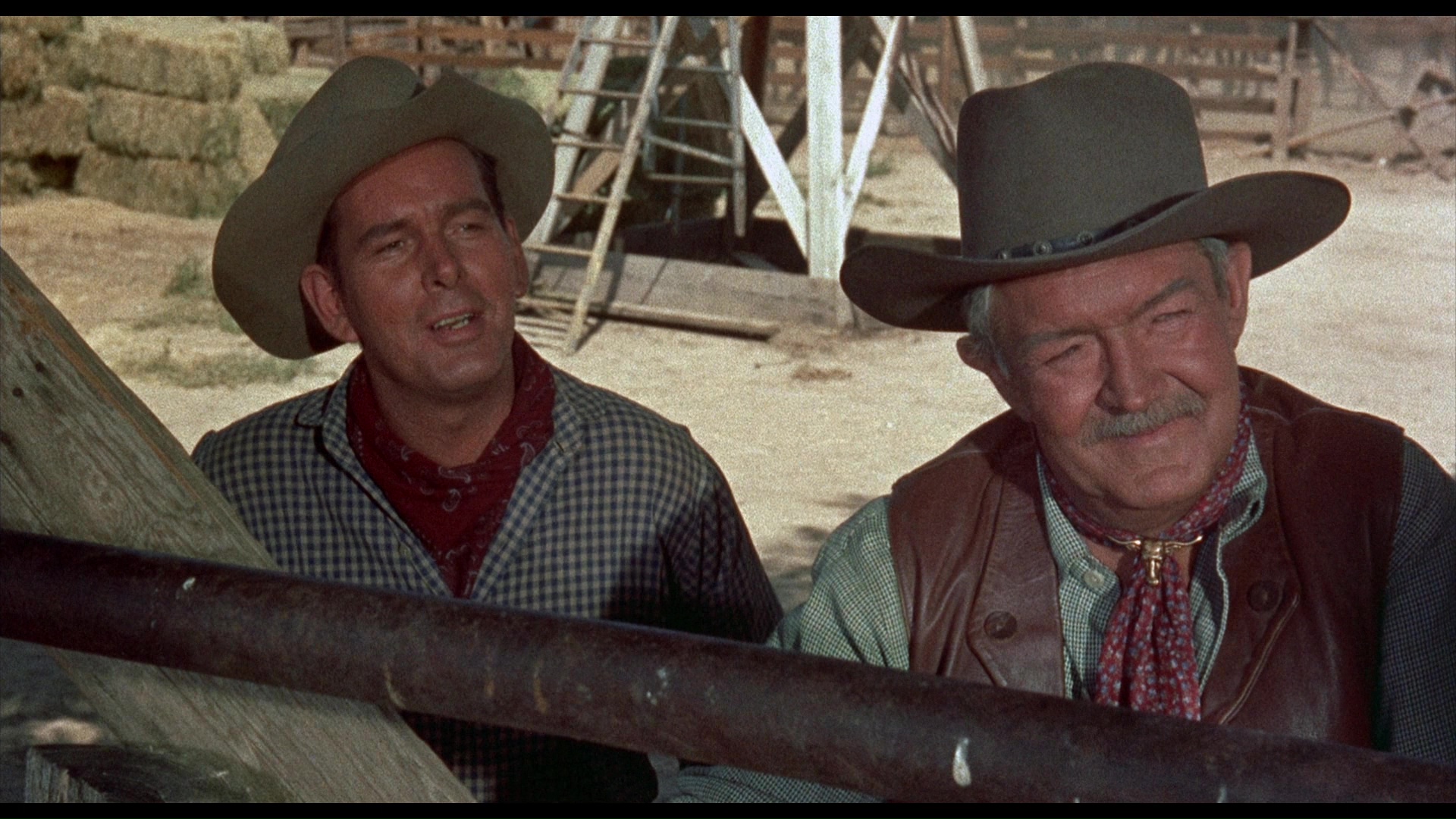
Released later the same year, Decision at Sundown introduces the recurring plot device of Scott seeking retribution for the death of his wife, in this case against a man named Tate Kimbrough (Carroll) whom he blames for her suicide. Accompanied by Sam (Beery), he intends to confront Kimbrough, his old boss, on his wedding day in the town of Sundown. However, the ceremony itself turns into pandemonium with Allison and Sam forced into a standoff inside a horse stable, with Kimbrough and his men forcing the townspeople to make some tough moral choices. Though not at the top of the heap in this series, it's a fascinating story that poses some moral questions that put our hero in a pretty unflattering light, a foreshadowing of what was to come when the western was completely upended in the 1970s.
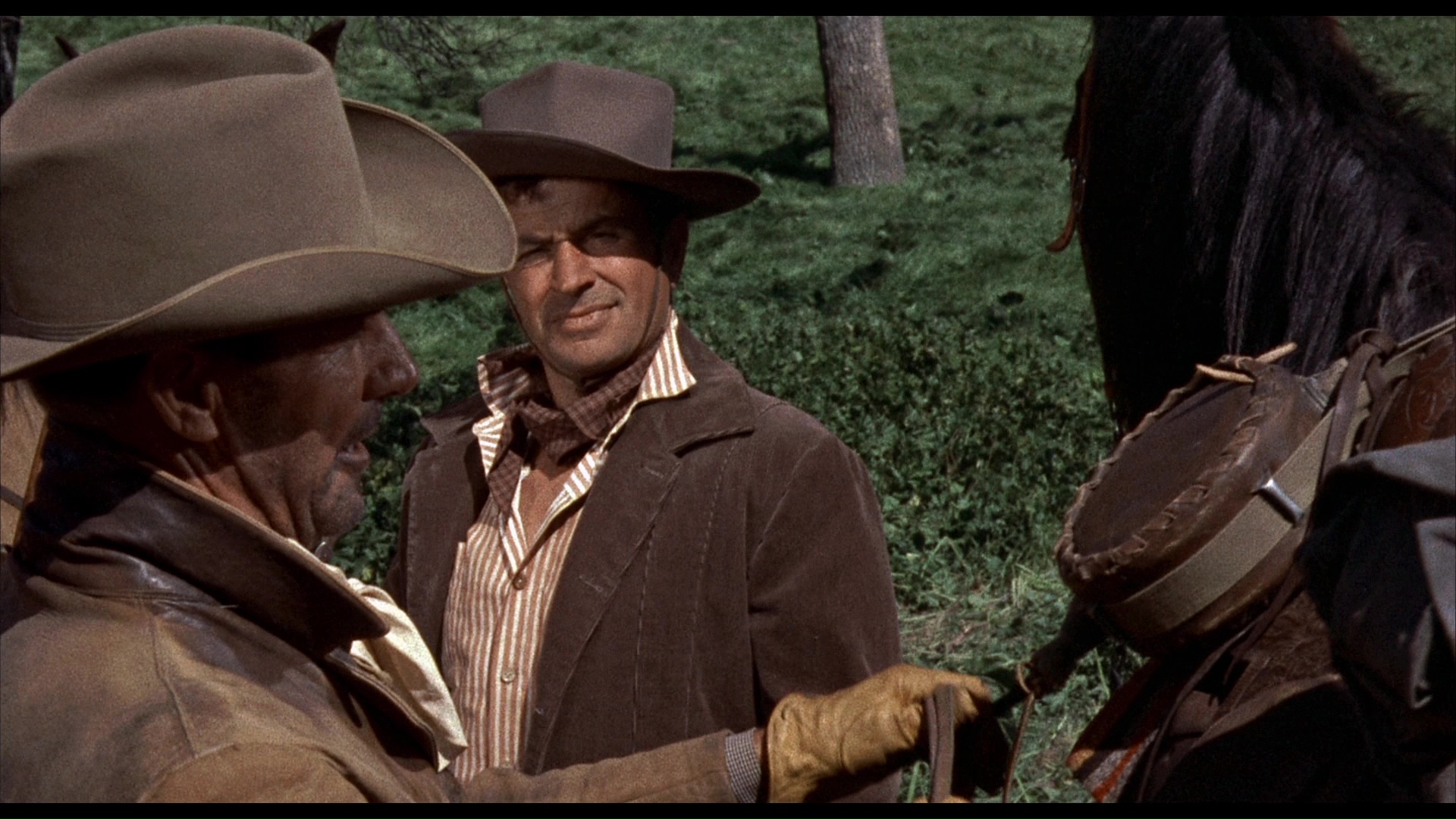
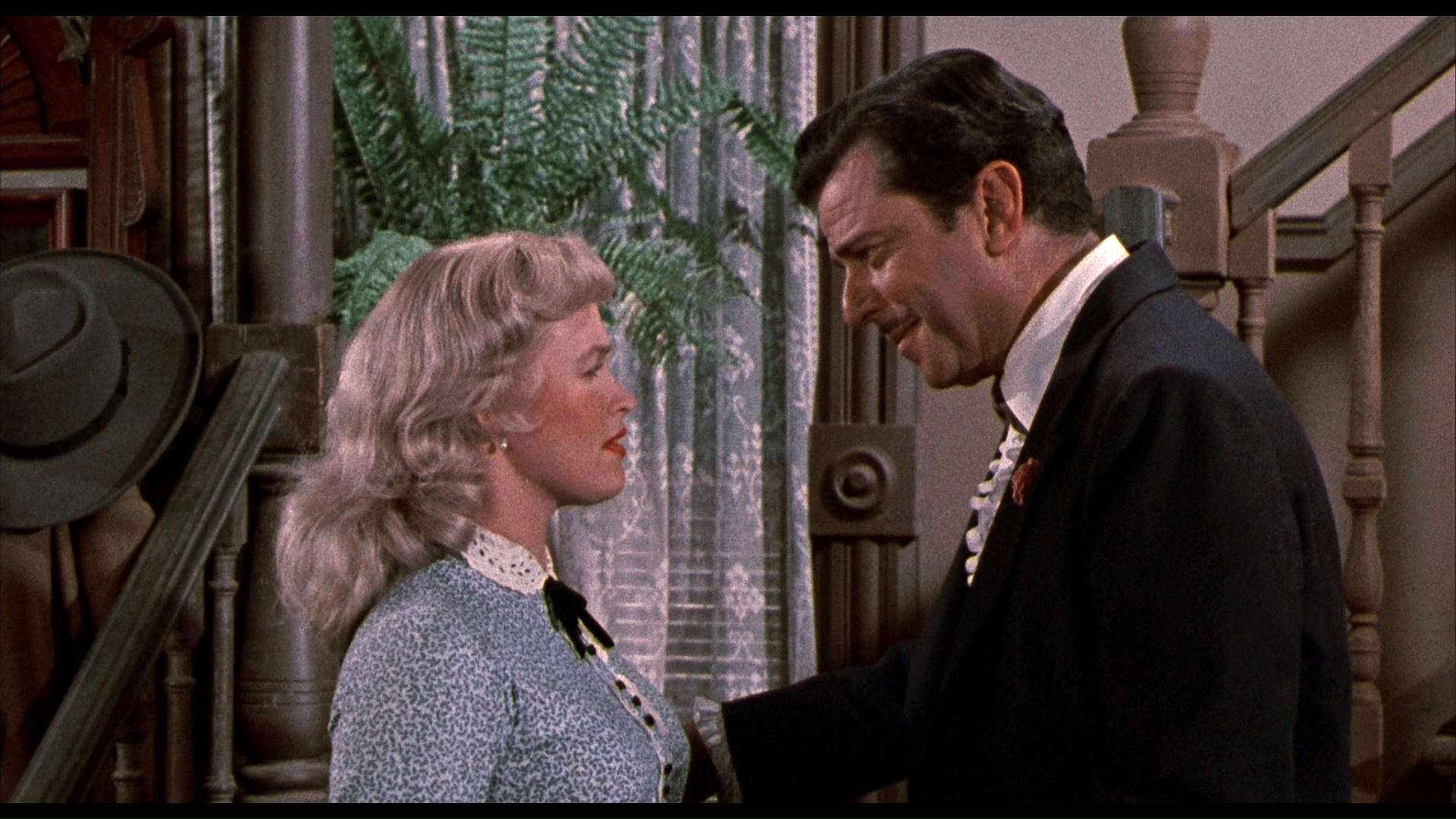
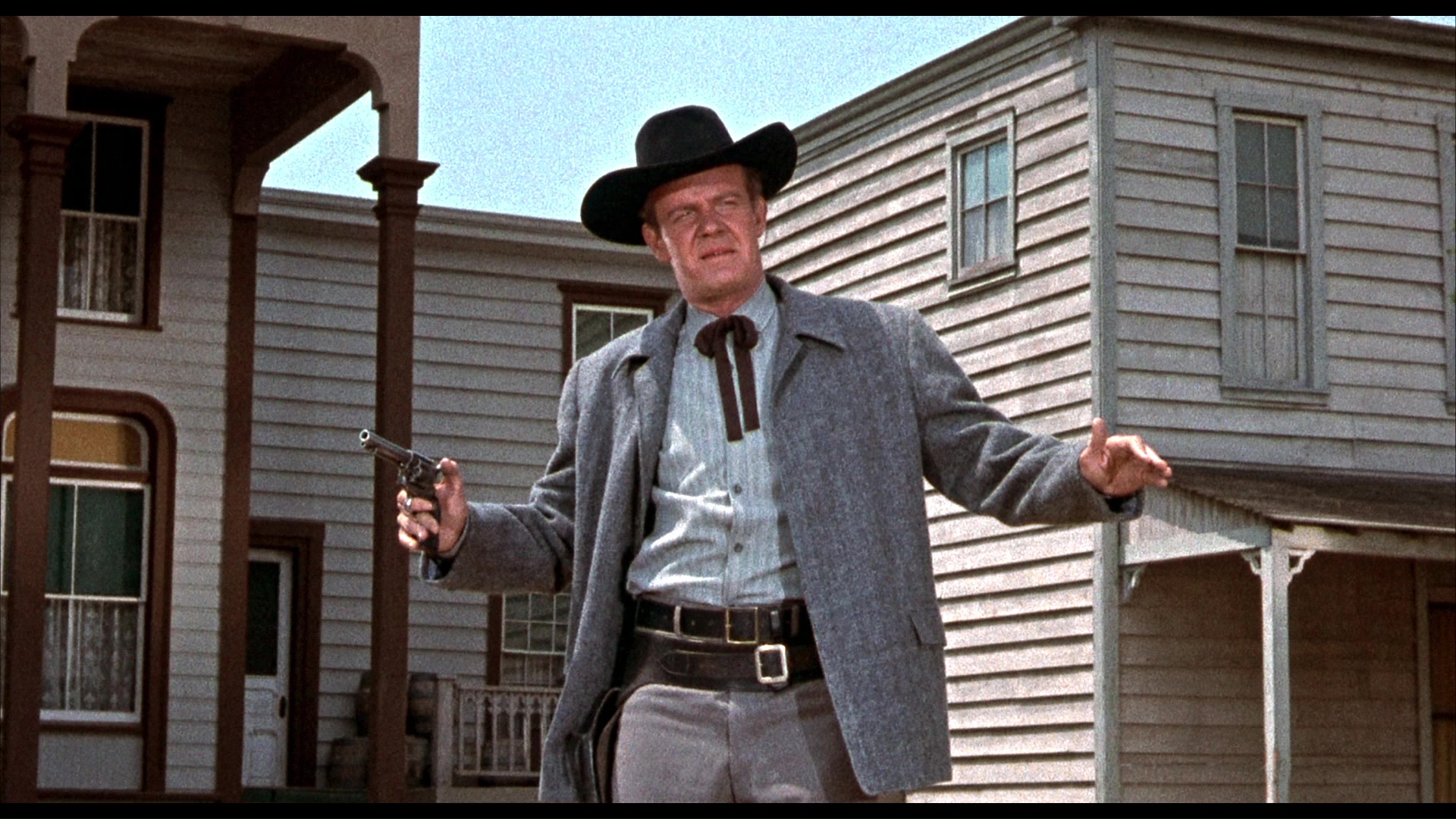
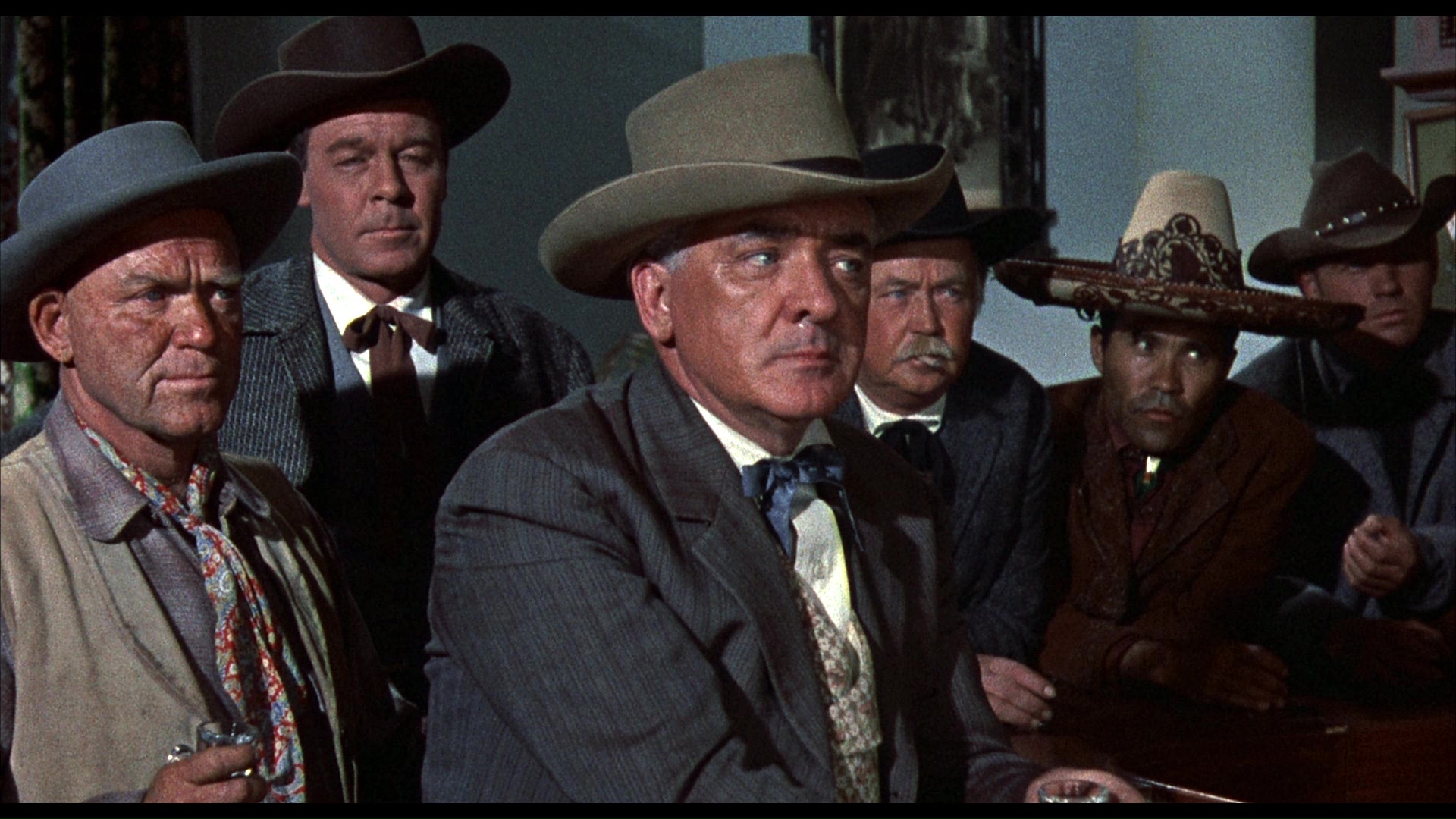
The oddest and most comedic film in the bunch and perhaps the most frequently overlooked in Buchanan Rides Alone, with Charles Lang and/or an uncredited Kennedy (accounts differ to this day) penning the story of corruption and violence in the town of Agry whose reigning family of the same name is in the midst of a nasty internal feud. Rancher Tom Buchanan (Scott, of course) rides into town - yes, alone, but not for long - en route to Texas and runs afoul of the clan including Sheriff Lew Agry (Kelly) and corrupt Judge Simon Agry (Avery), even getting sent in the direction of the hangman's noose due after jumping to the aid of a Mexican resident. Soon bullets are flying left and right as the local order quickly unravels. A loose and surprisingly sunny film given the violent subject matter, it's a nice change of pace with Scott seeming a bit more relaxed than usual here but heroic as always.
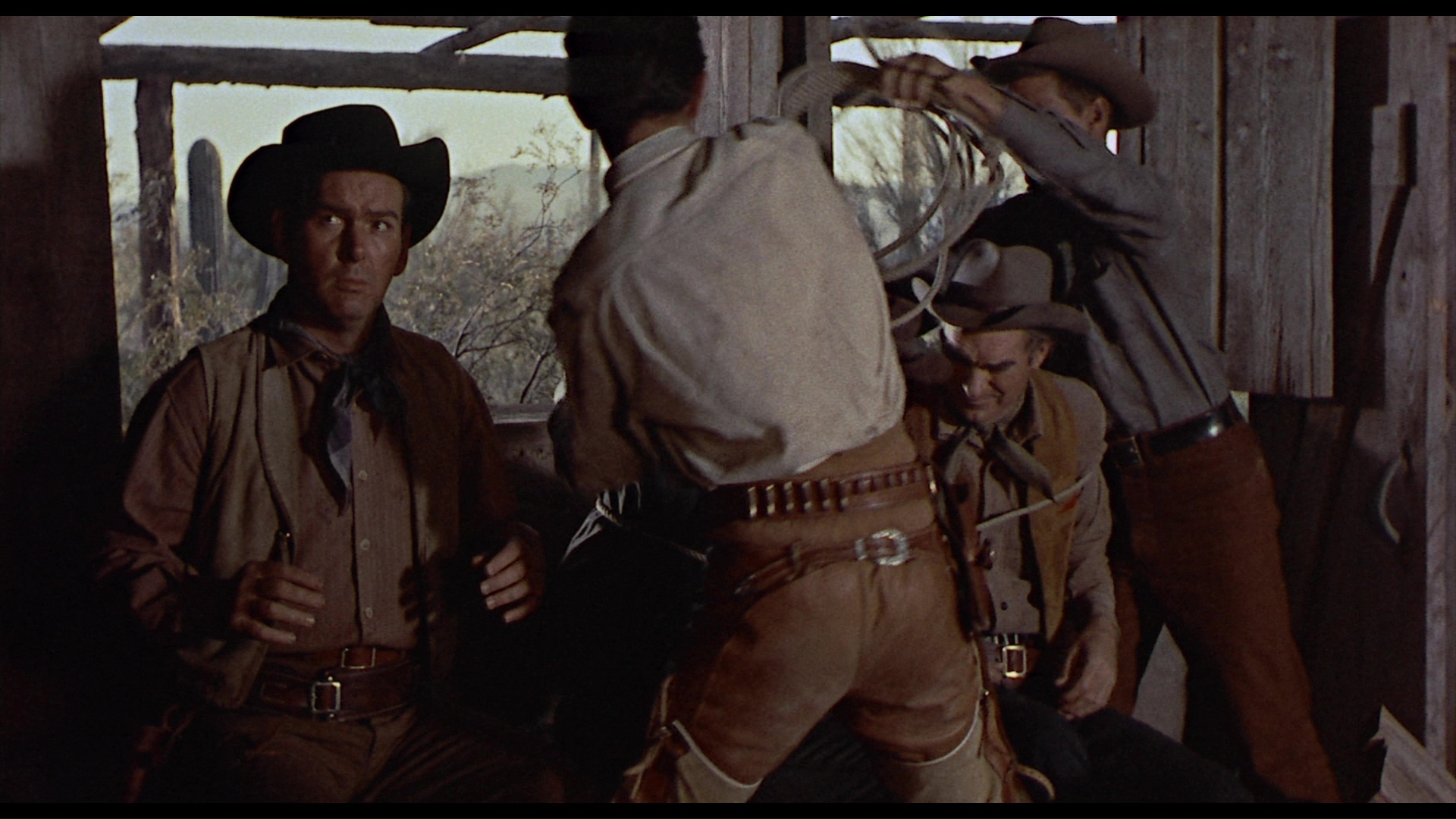
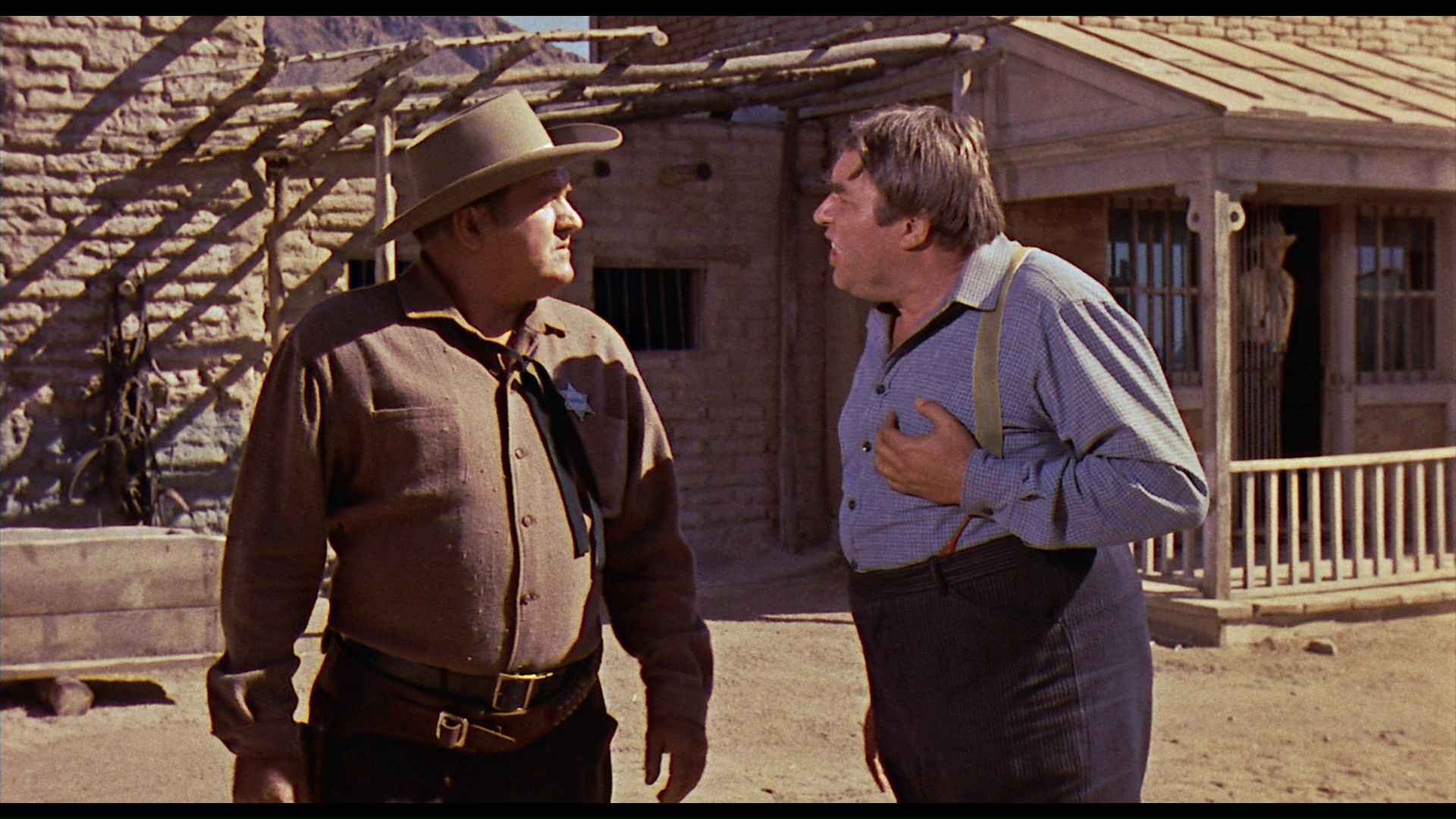
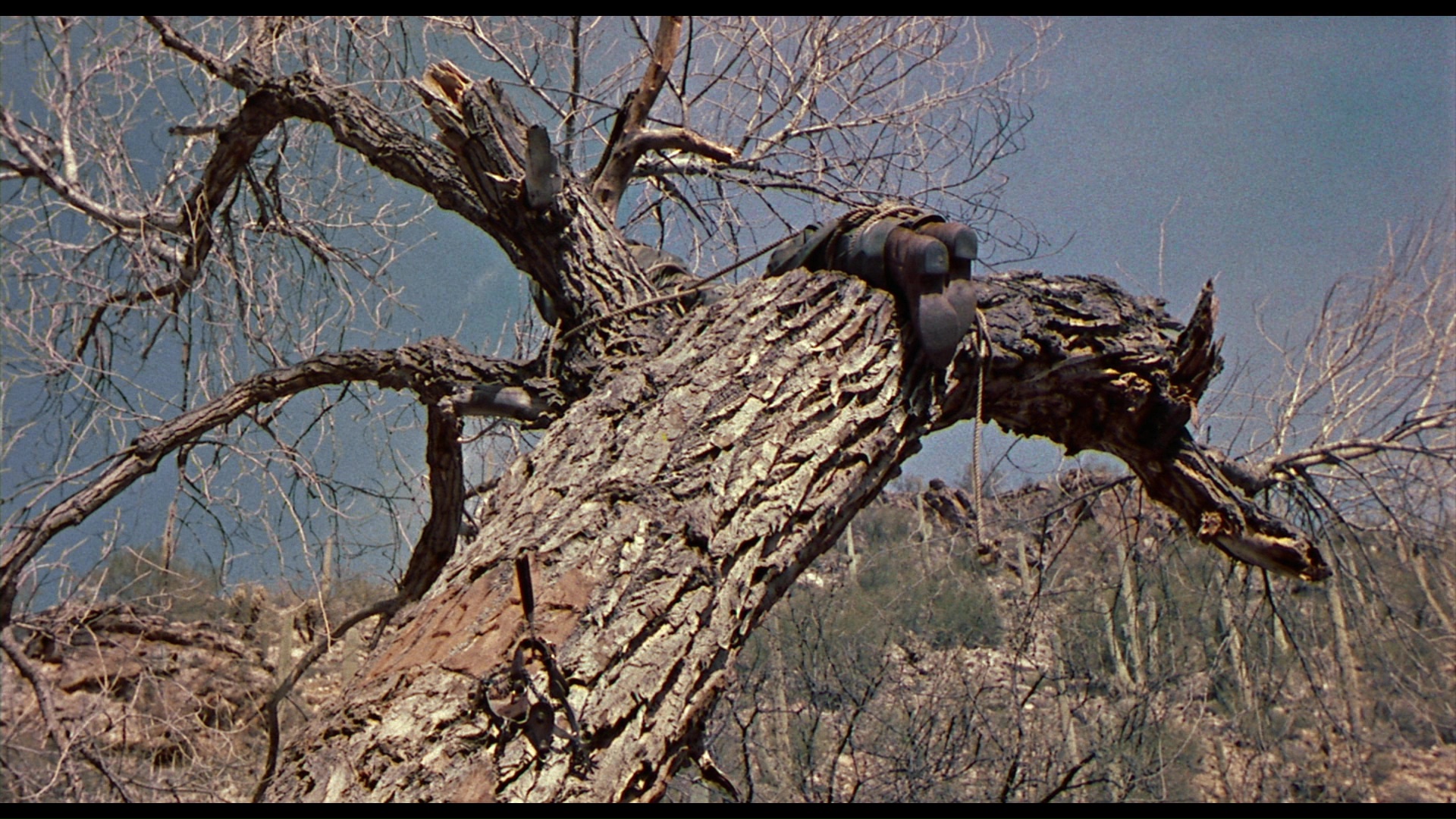

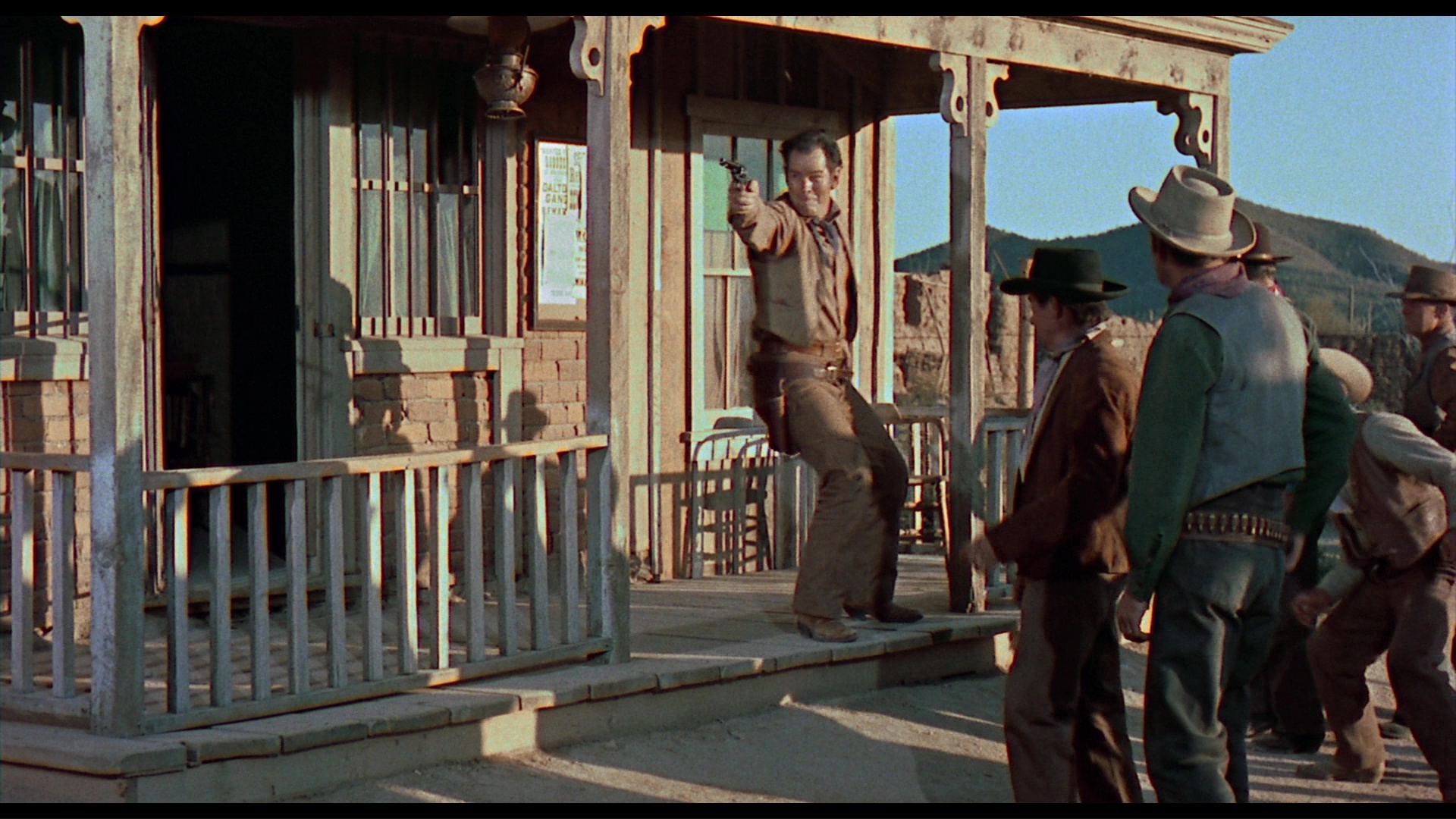
Boetticher ended up happily switching to CinemaScope for the last two films in the set, starting with one of the very best of them all, Ride Lonesome. A sprawling, panoramic film (good luck finding any close ups), it also features the strongest cast of them all thanks to pros like Lee Van Cleef, Lee Marvin, Pernell Roberts, and a very young James Best. Here Randolph stars as Ben Brigade, a former sheriff and bounty hunter who nabs wanted man Billy John (Best) at the beginning of the film but is warned that the outlaw's brother, Frank (Van Cleef), will be tracking them and taking any means necessary to stop Ben from collecting his reward. Along the way he helps out the stranded Carrie Lane (Steele) and ends up traveling with the suspicious Sam (Roberts) and Whit (Coburn), who may or may not be in league with Billy John's brother -- but Ben's motives may also not be exactly as they seem. A model of economic storytelling and character development, this film doesn't waste a single frame and uses its entirely exterior-driven setting to fine effect as a primal backdrop to a story with enough twists and turns to keep your eyes locked on the screen all the way to the end.
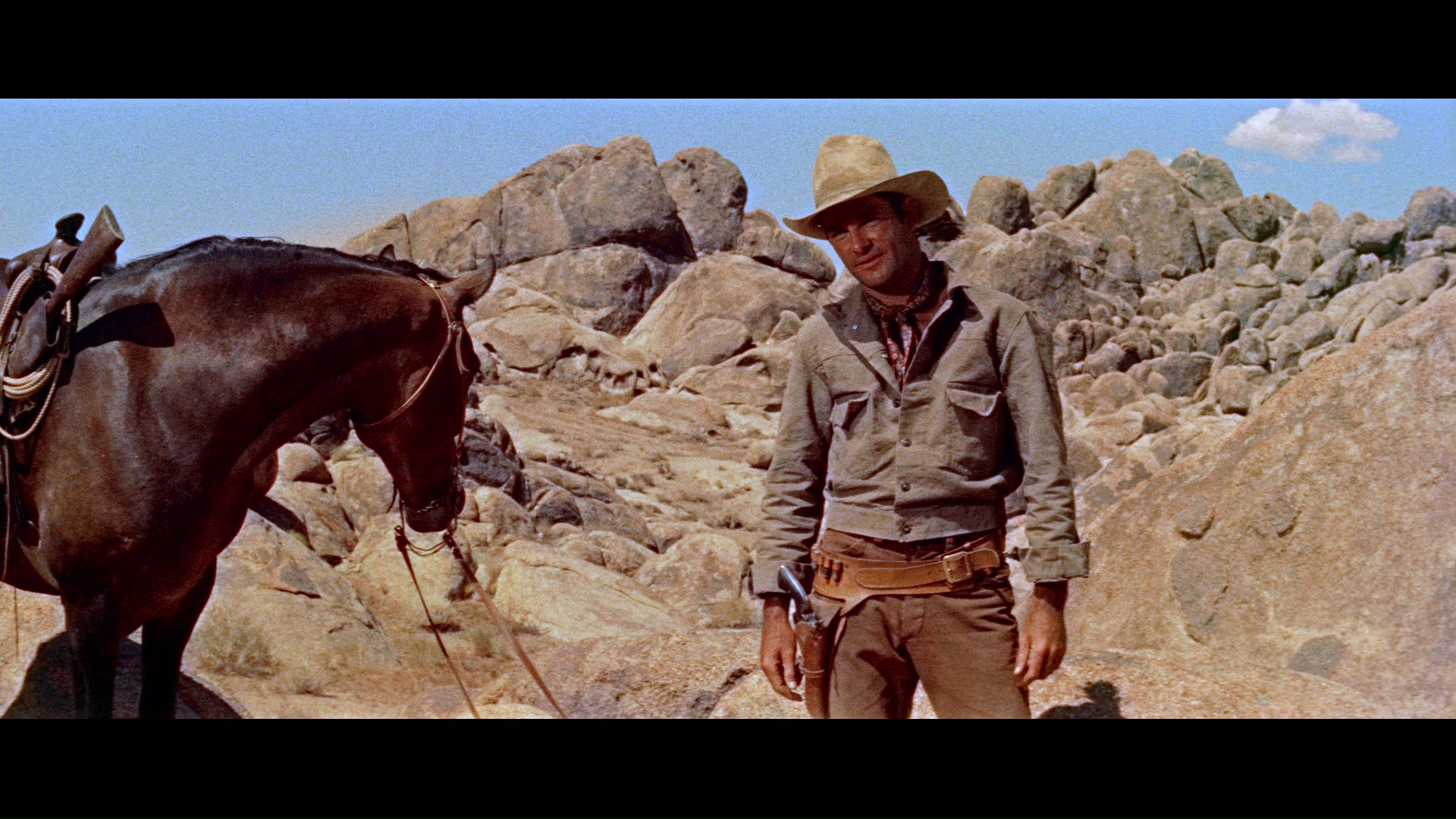
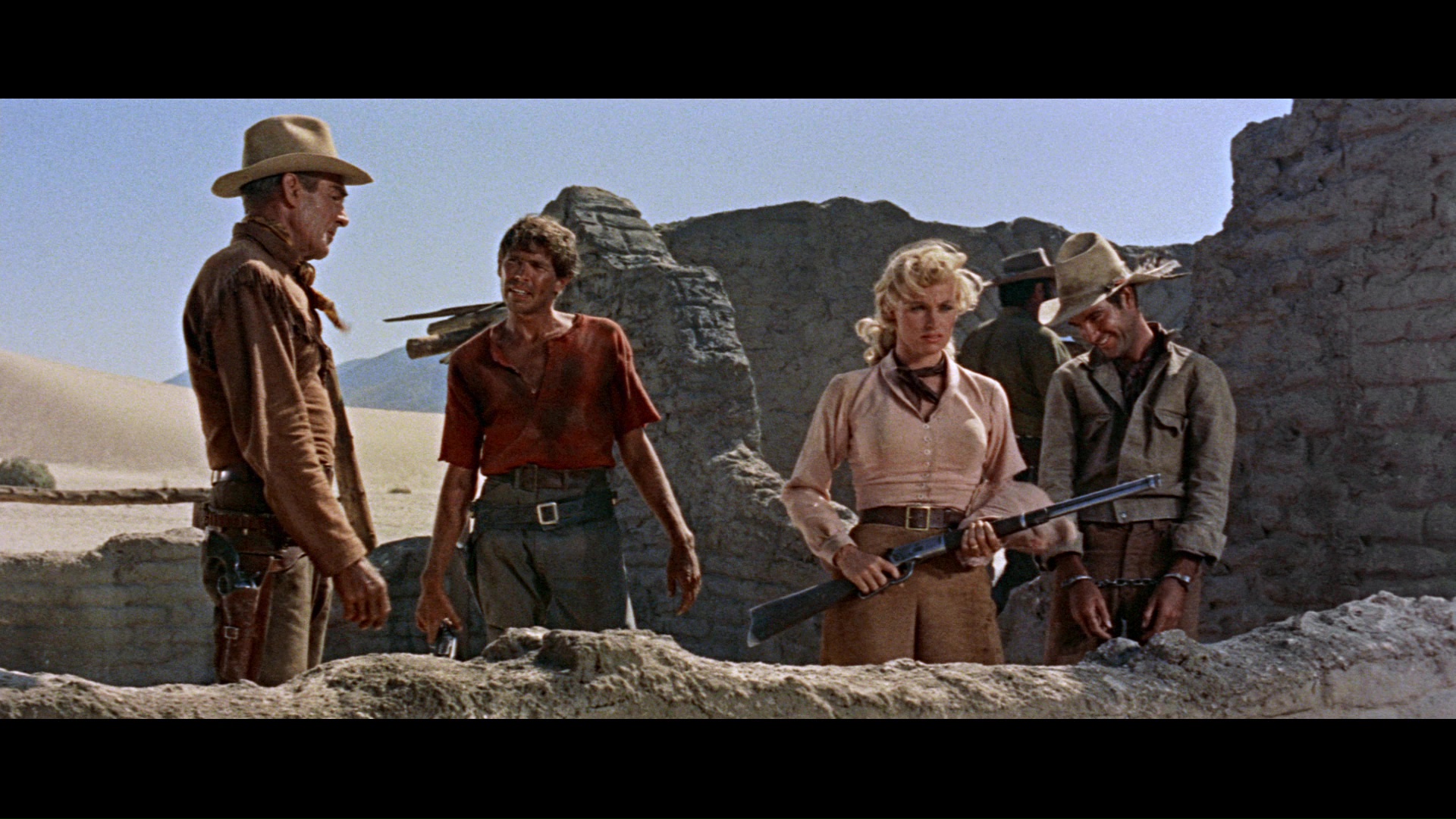
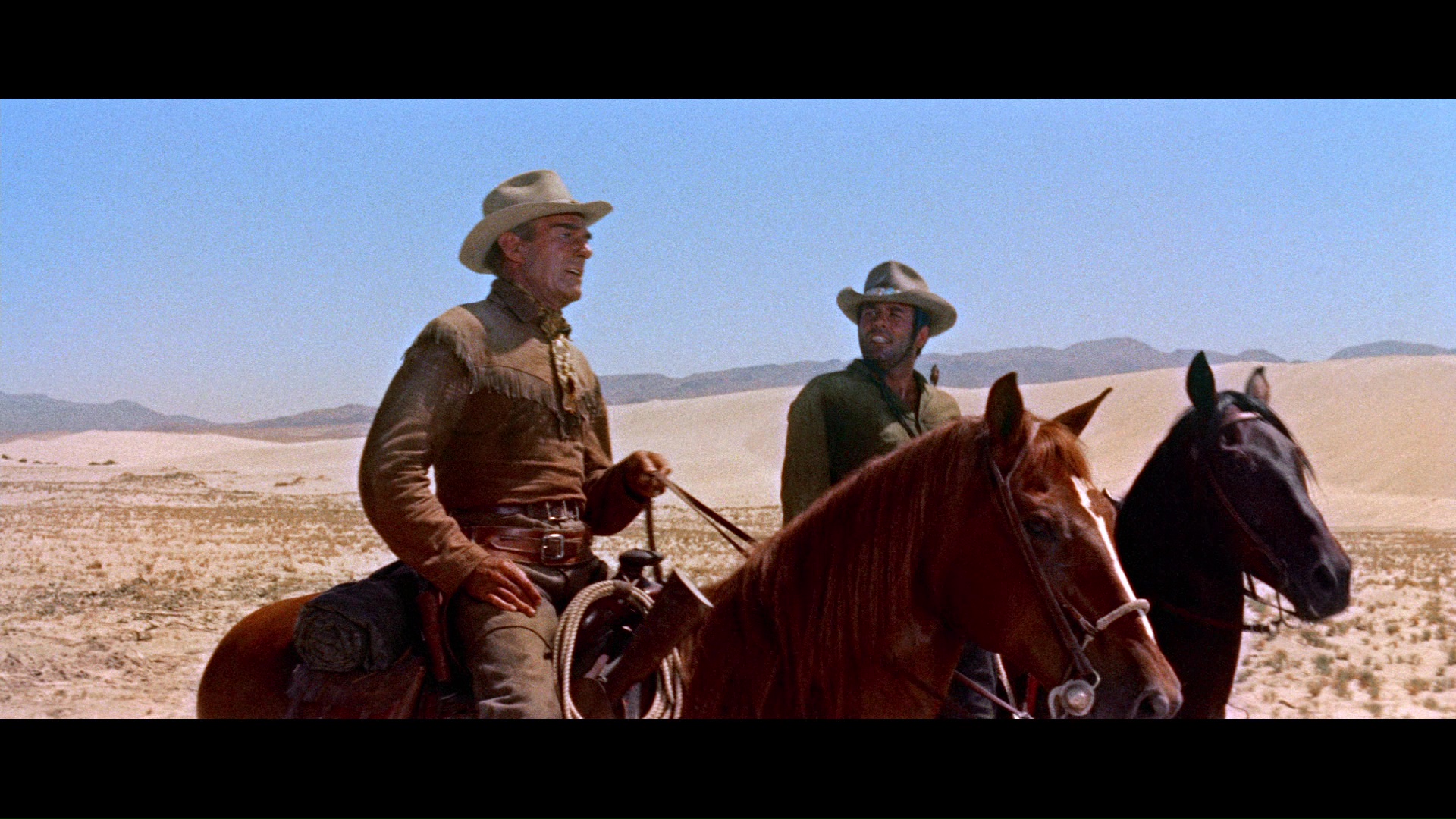
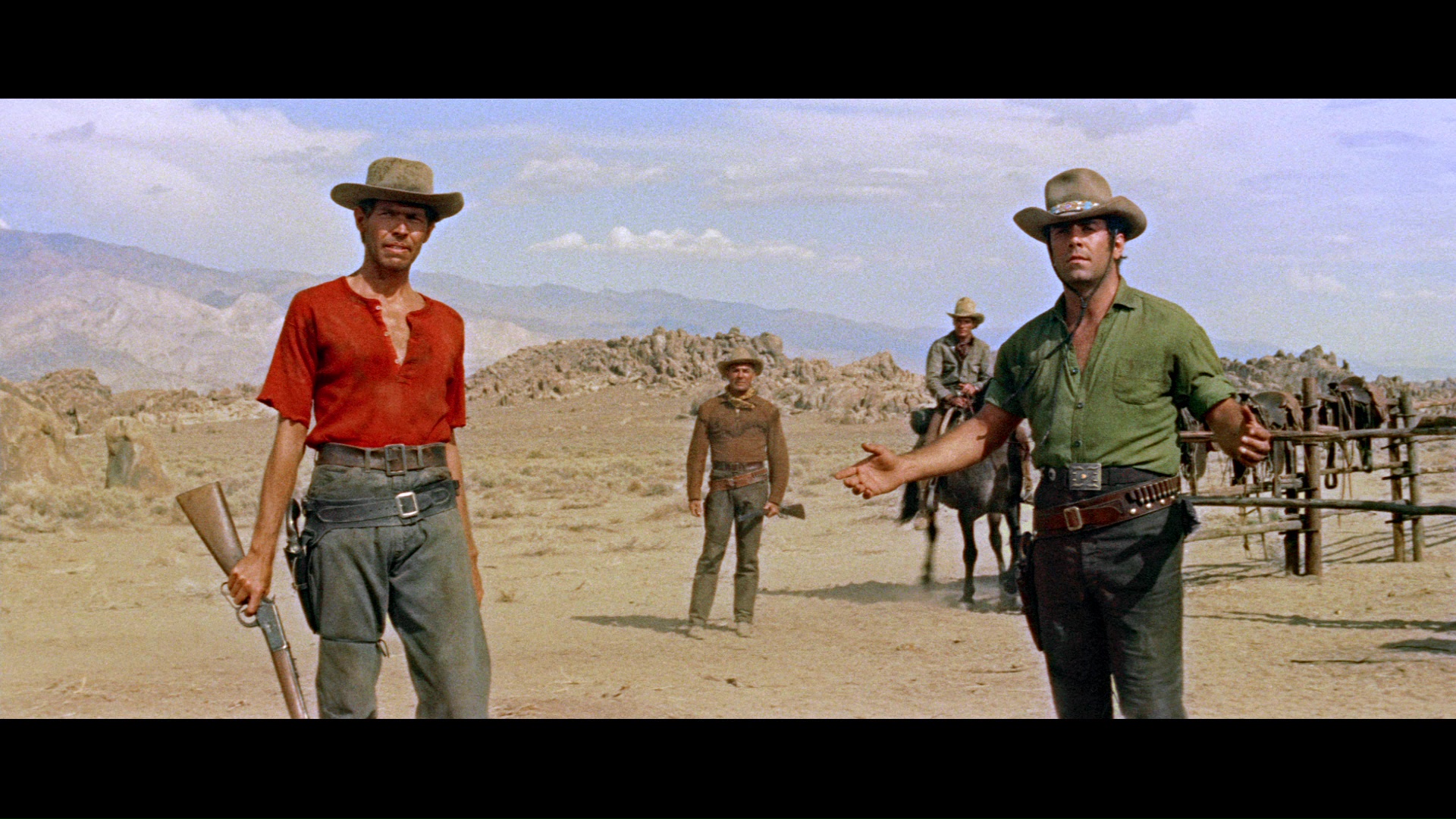
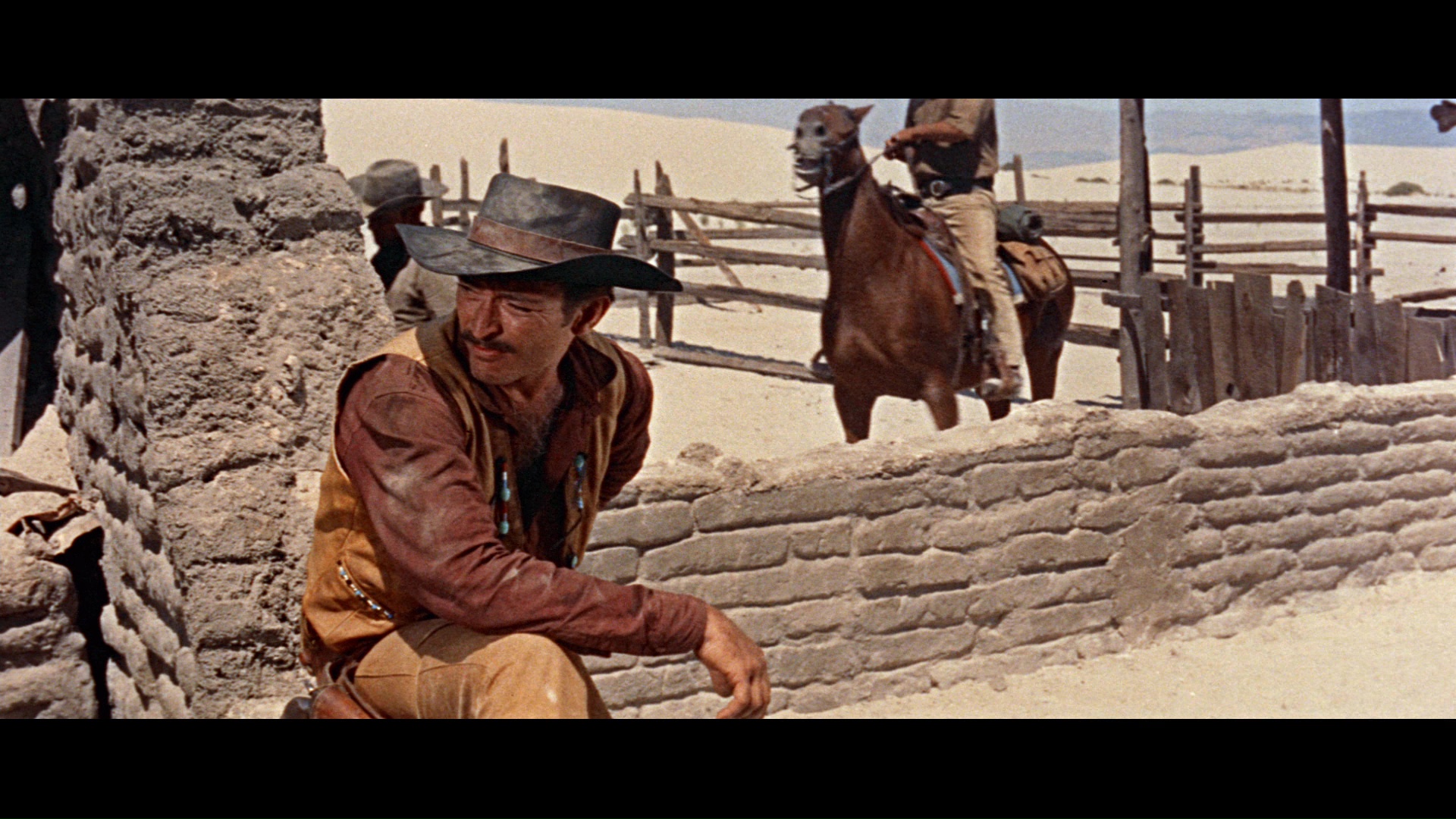
Finally the Boetticher-Scott Columbia series rounds out with Comanche Station, also shot in CinemaScope and the closest thing to an epic among these titles. Scott's back to tragic wife territory as Jefferson Cody, whose ride through Comanche territory after the abduction of his wife (now missing for a decade) gives him the opportunity to save Nancy Lowe (Gates) from a similar fate. Her husband has put out a $5,000 dead or alive reward for her, which makes Cody the target of a man he'd crossed in the past, Ben Lane (Akins). As the irate Comanches would seem to pose the most immediate threat, it's actually Lane and his men who turn out to be the homicidal villains here with a quest to not only collect the reward but also silence Cody and Nancy before they get back to the nearest town. Another pared-down gem, Comanche Station gives Scott the chance to play perhaps the most clean-cut good guy role out of these and features one of the niftiest twists of them all when we find out exactly why Nancy's husband isn't out there scouring the countryside himself to find her. The use of spectacular widescreen scenery is also a major plus and makes one wonder where these films could have gone had Boetticher and Scott stayed the course for a few more films, but what we have here is certainly satisfying enough.
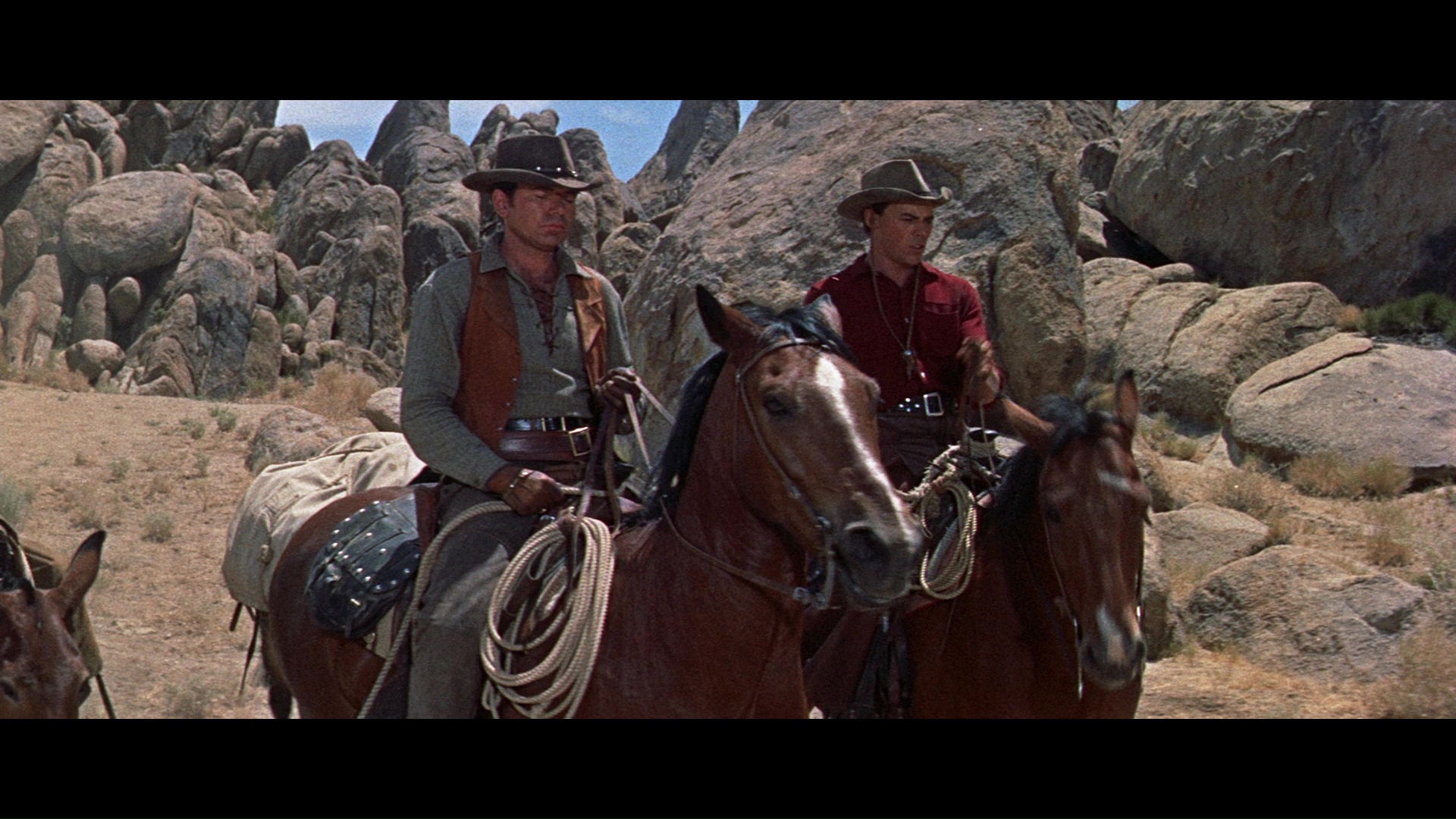
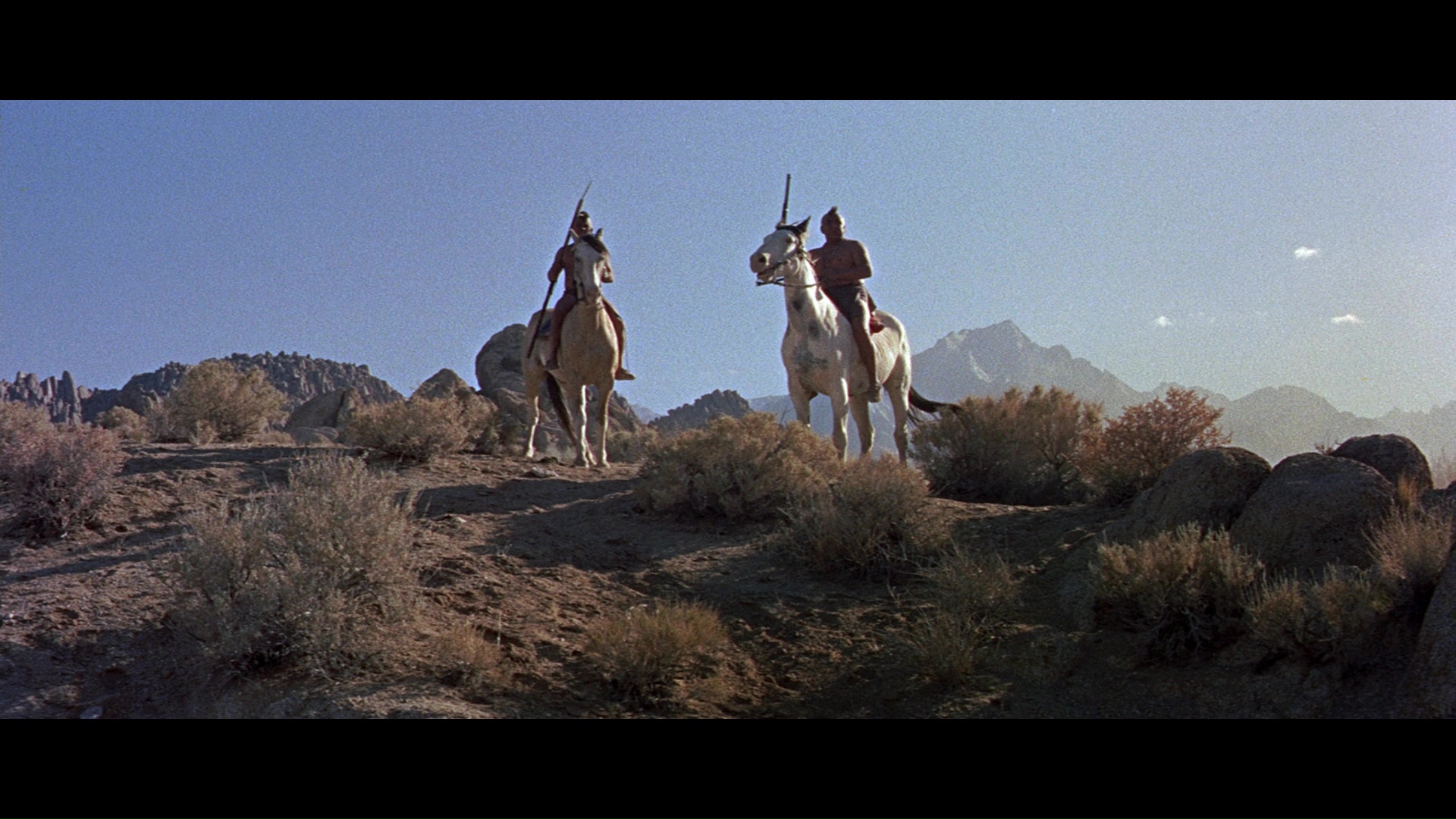
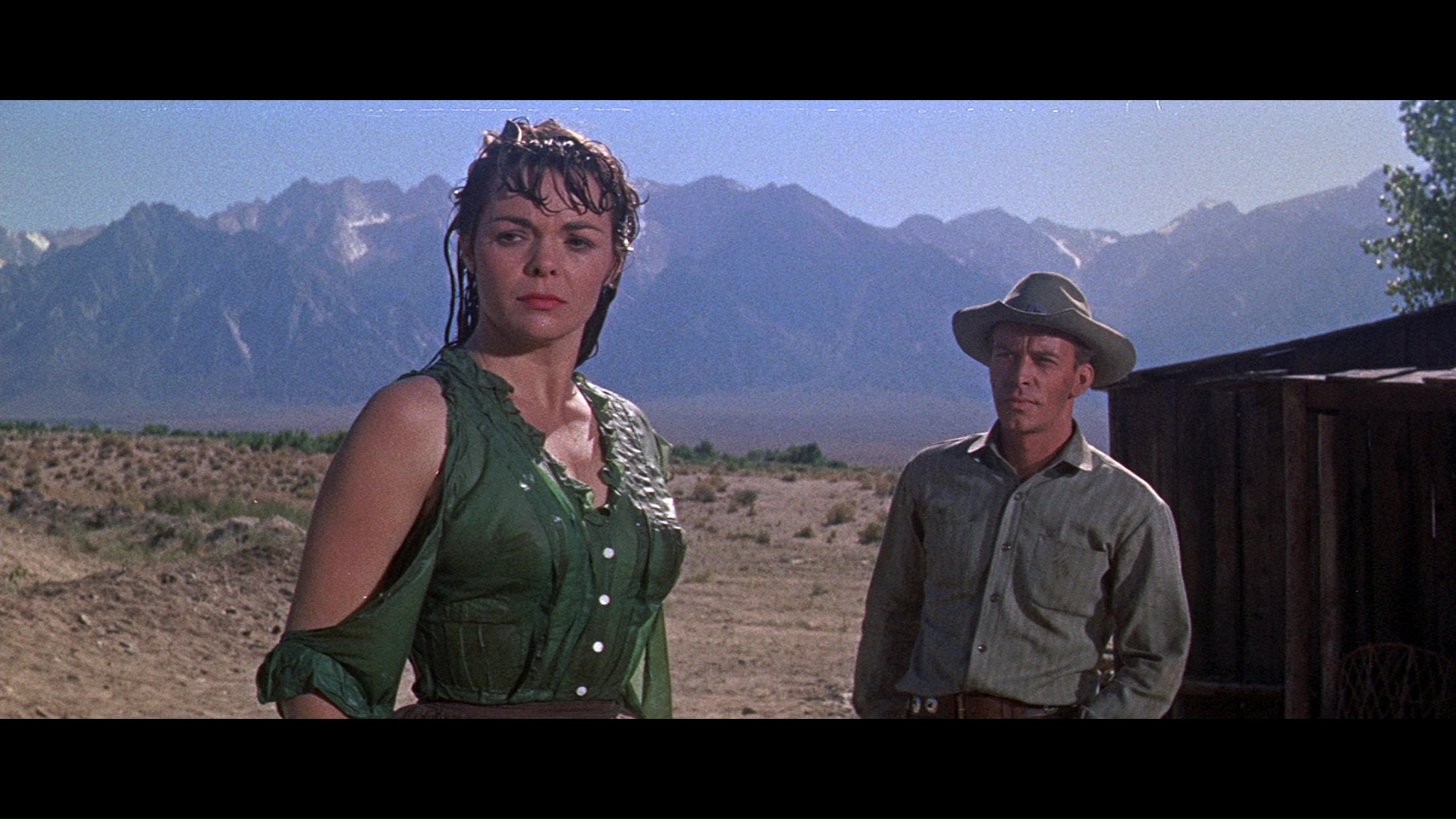
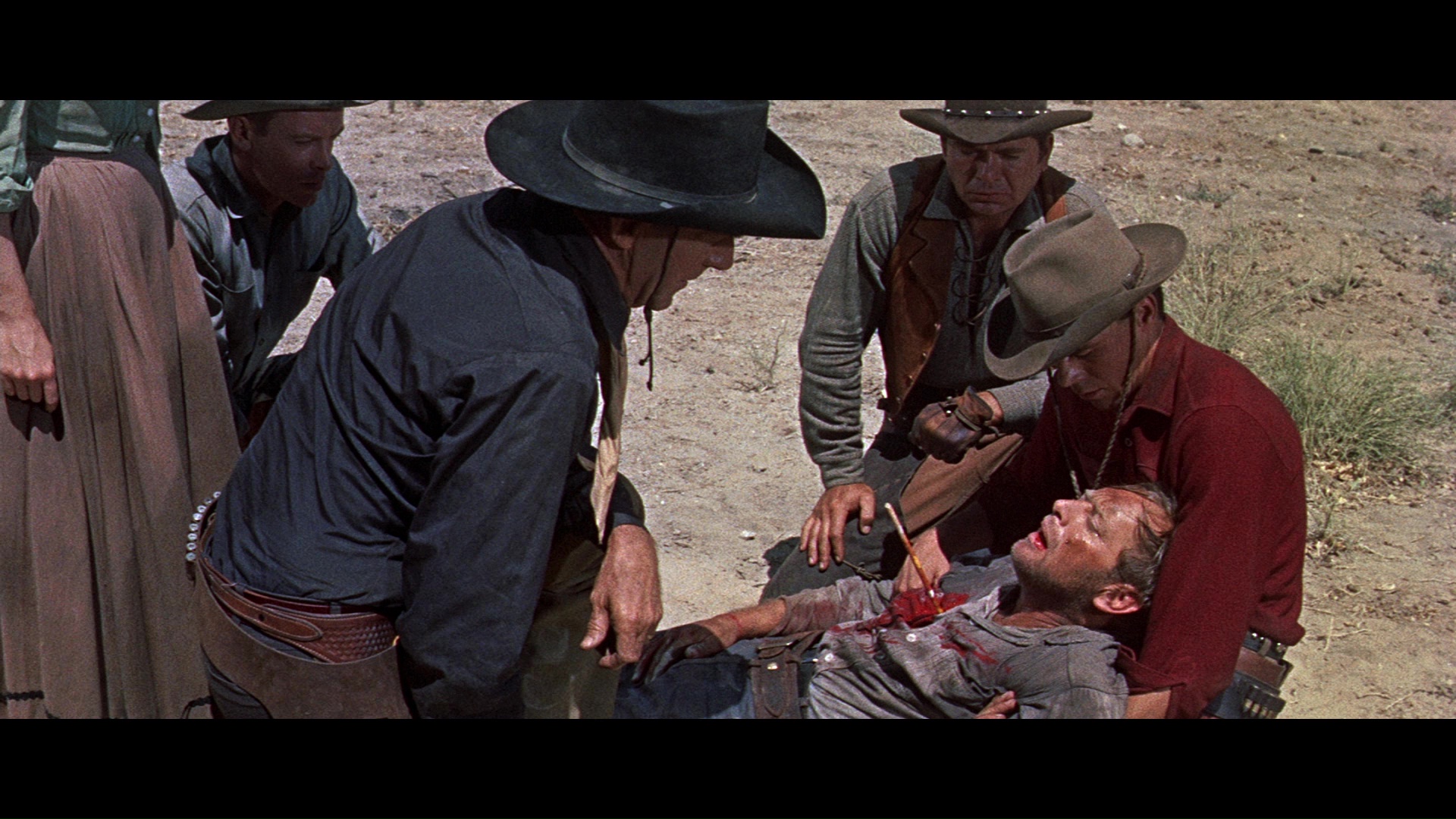
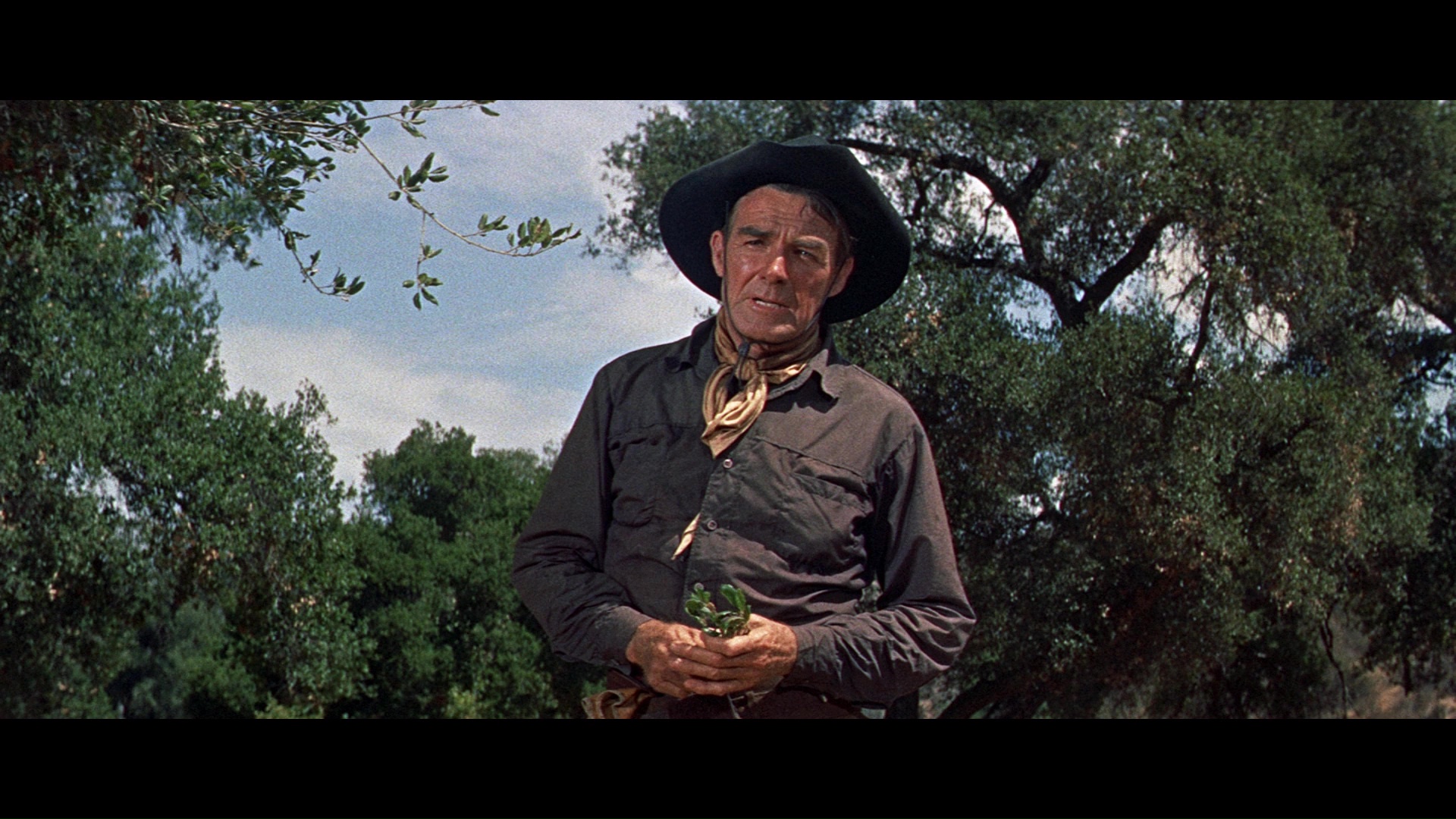
The 2008 DVD set was already chock full of solid supplements, all of which have been ported over to the Blu-ray box (apart from the great documentary A Man Can Do That, strangely) and are always welcome for a revisit: audio commentaries for The Tall T (by Jeanine Basinger, who's excellent), Ride Lonesome (by Jeremy Arnold, one of the best out there and a good friend of Boetticher's in his later years as well), and Comanche Station (by director Taylor Hackford), plus theatrical trailers and video appraisals of Comanche Station by Clint Eastwood (6m25s), The Tall T and Ride Lonesome by Martin Scorsese (6m53s and 5m20s), and Decision at Sundown and Buchanan Rides Alone by Taylor Hackford (9m26s and 5m44s). However, that slate has been added to here with a vengeance including four audio tracks all recorded over a period of decades in London: a great "The John Player Lecture" appearance by Boetticher in 1969 with interviewer Jim Kitses (with the films still fresh in his mind and the director in feisty form), a later "The Guardian Interview" Boetticher interview from 1994 with David Meeker, and the great Elmore Leonard for another "Guardian" session from 1997 (on the Tall T disc, of course), chatting about his formidable body of work including not only this western but others as well before he famously turned to crime novels. Another Boetticher interview can be found in a pretty incredible 37m20s chunk from an unreleased Eckhart Schmidt doc about the director shot in 1999, with the director chatting and going about his routine on his ranch as he talks about his pre-directing bullfighting days, his thoughts on fellow western directors and movie stars, evaluations of his own output, and tons of other topics. It's almost worth snagging the box for this goodie alone. Frequent western commentator Christopher Frayling gives his own appraisal of the director's contributions (19m24s) in a new featurette, with critic and novelist Kim Newman offering his own, even lengthier take on the seven Ranown films (28m27s). Cristina Álvarez López hones in more specifically on Ride Lonesome (14m4s) in her own critical video piece, while film historian Edward Buscombe tackles the enduring appeal of Scott as a movie star and moral icon in "A Man Alone" (16m47s). In addition to the usual trailers you also get Trailers from Hell commentary on the ones for Ride Lonesome and Comanche Station by John Sayles and Sam Hamm respectively, a condensed Super 8 version of Comanche Station (which, not surprisingly, loses a lot when it loses its full scope width), and copious image galleries with loads of posters, production photos, and other ephemera. As for the transfers, these are all from the same excellent HD sources created by Sony for the DVD releases except for Ride Lonesome, which gets a new 2K scan; the strangest looking one as always is Buchanan, whose opening touts its "Columbia Color" process that has an odd look found in other retitled versions of Eastmancolor around that time (like Warnercolor). Transfer-wise it's great though; the night scenes are really meant to look like that. The first couple of films are inherently a bit grittier and grainier given the nature of the source; some critics have noted a bit of a teal push in the opening segment of Tall T, though it looks like a matter of color timing to try to match the time of (narrative day) and nowhere near the extremes of the horrific teal vandalism inflicted on way too many Fox catalog titles. The LPCM English mono audio tracks for all of the titles (with optional English SDH subtitles) are all immaculate. As usual the box itself is quite the striking work of art including a hefty, 80-page insert booklet (though "book" might be a more appropriate term) complete with new essays about each film by Pamela Hutchinson, Glenn Kenny, James Oliver, Neil Sinyard and Farran Smith Nehme, plus archival interviews with Boetticher by Wheeler Winston Dixon (including a crazy bit about Sergio Leone and Sam Peckinpah) and Kennedy by Sean Axmaker, a transcription of a 1964 written Q&A between Boetticher and Bertrand Tavernier, and a critical archive of excerpts about the films by such names as Robin Wood and Thorold Dickinson.
Reviewed on May 30 2018.



![]()